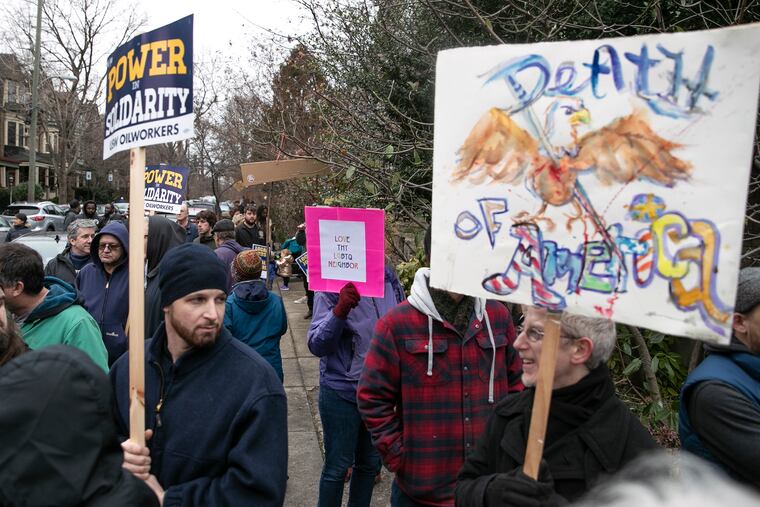EPA reminds bankruptcy court: Philly refinery owes it millions
The government has joined a parade of parties staking claims on the bankrupt PES refining complex, whose sale and reorganization are in the final, frantic stages before a scheduled confirmation hearing next week.

Federal environmental regulators have joined a parade of parties staking claims on the bankrupt Philadelphia Energy Solutions refining complex, whose sale and reorganization are in the final, frantic stages of negotiation before a scheduled confirmation hearing next week.
The U.S. Environmental Protection Agency filed a “protective objection” late Tuesday to ensure that the reorganization plan contains language that adequately protects the government’s interests. Its filing is primarily aimed at preserving the EPA’s claims for millions of dollars of unpaid renewable energy credits that it says PES owes the government.
The plan that PES submitted to the court last month poses an “unacceptable risk” that the refinery’s obligations to pay for ethanol credits, known as Renewable Identification Numbers, or RINs, will go unpaid before the company’s assets are liquidated.
About 10 parties have so far submitted objections to the reorganization plan, complicating a final resolution. Many of the objections are efforts by parties to get priority over claimants when the refinery’s assets are divvied up. A confirmation hearing was pushed back to Feb. 12 before U.S. Bankruptcy Court Judge Kevin Gross in Wilmington.
Much of the public focus on the refinery bankruptcy is over who will buy the 1,300-acre property, which is contaminated from more than a century of oil processing. PES selected a $240 million bid from Hilco Redevelopment Partners, which has told the city that it intends to close the refinery. But rivals assert that a second bidder, Industrial Realty Group, whose plan includes a resumption of refining, bid $25 million more and should have been selected.
PES was the largest refinery on the East Coast before it shut down following a June 21 fire. It declared bankruptcy a month later, its second bankruptcy filing in two years.
The EPA, in its filing submitted by the U.S. Attorney’s Office, indicated it is engaged in negotiations with PES to settle its concerns before the confirmation hearing.
The agency’s concerns about the refinery’s obligations to buy biofuel credits, or RINs, touch on a long-standing issue that the refinery’s managers complained has cost the business hundreds of millions of dollars — its obligations to blend ethanol with motor fuel under the federal Renewable Fuel Standard.
The EPA says that PES needs renewable credits for the first six months of 2019. The bankruptcy plan includes an estimated reserve of $28.8 million for the credits, which PES said “shall not constitute an admission of priority or amount of RINs liabilities.”
The government argues that the RINs obligations are not a claim that can be dismissed by the court — they are “non-dischargeable compliance obligations” — and the company’s reorganization plan fails to demonstrate how it will comply.
The EPA, which regulates water and air emissions standards that apply to the refinery, also objected to the plant’s language that “might be misconstrued” to limit a future owner’s responsibility to protect public health.
“Nothing in the Bankruptcy Code permits a future owner or operator of property to evade its obligation to comply with environmental law as the owner of contaminated or defective property,” the EPA said.
The refinery also faces state environmental obligations. It signed a consent order on Jan. 15 with the Pennsylvania Department of Environmental Protection settling multiple violations for water discharges and storage-tank inspections, unrelated to the June fire. PES agreed to pay $151,000 in fines, which puts the DEP’s claim among the highest priorities during a bankruptcy resolution.
Meanwhile, advocates for and against reopening the refinery continue to conduct public demonstrations. On Wednesday, a contingent of refinery workers held a rally outside a West Philadelphia school where Vice President Mike Pence was making an appearance, to urge the Trump administration to support the resumption of oil processing at PES.